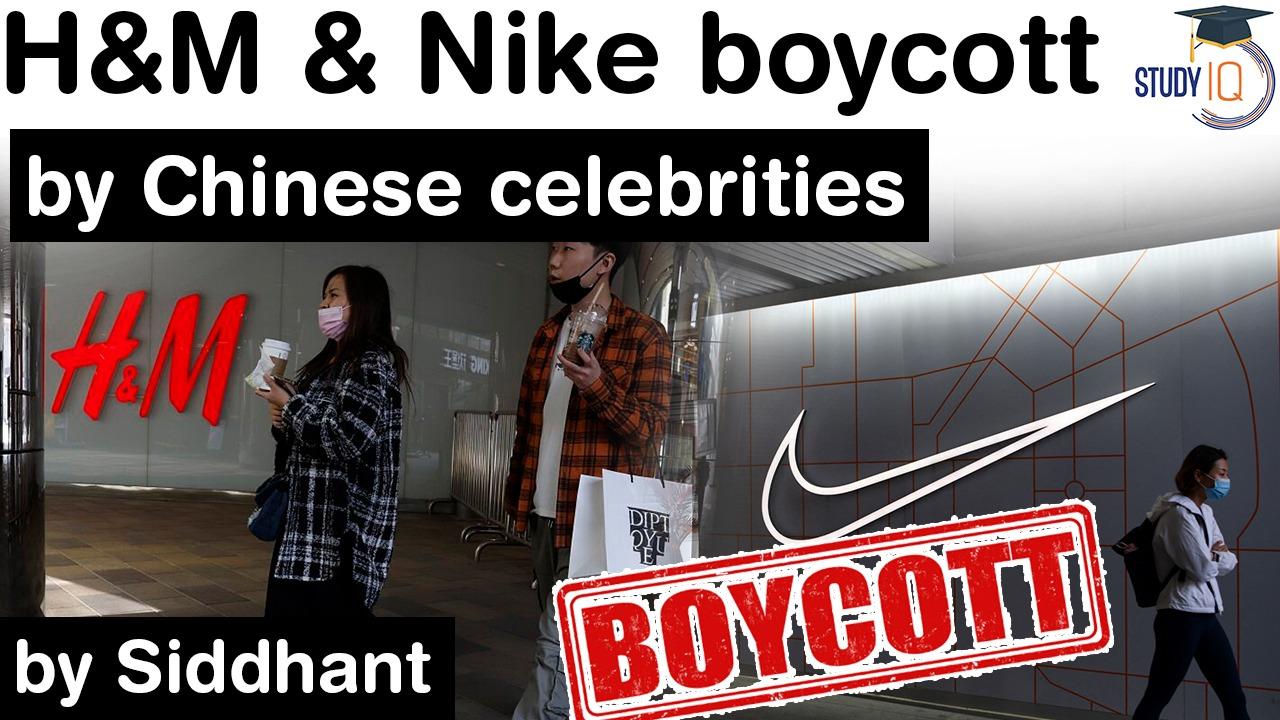Table of Contents
HOLI AND COVID 19
- Over the last week, at least 40 high profile Chinese celebrities cancelled lucrative sponsorship contracts and brand partnerships with a number of foreign-owned clothing brands, including H&M and Nike, over Western allegations of forced labour and human rights violations by Chinese authorities in the contentious Xinjiang region.
How did these foreign brands find themselves in this situation?
- The latest controversy arose earlier this week when the ruling Communist Party’s youth wing, the Communist Youth League, shared an old statement from H&M on the Chinese social networking platform Weibo, in which the company said it was “deeply concerned” following reports of forced labour in the production of cotton in Xinjiang. In the post, which was shared in September last year, the company stated that it would stop buying cotton from growers in the region.
How did these foreign brands find themselves in this situation?
- China is H&M’s third-largest market in the world, after Germany and the United States. In 2019, the last year for which annual figures have been reported, the fashion label had 520 stores and $1.4 billion in sales in China.
- In fact, the response on Chinese social media was so widespread and unprecedented that March 25, the day the Communist Youth League shared the post about H&M, has been dubbed “contract termination day” within the Chinese entertainment industry, CNN reported.
Xinjiang and cotton
- Around 87 per cent of all the material produced in China is made out of cotton obtained in Xinjiang, the New York Times reported.
- This means that around one in five cotton garments sold globally contains cotton or yarn from the region.
But why now?
- Despite the fact that several of the social media posts by foreign fashion labels that surfaced this week were originally shared a year or more ago, the companies faced backlash like never before. So, why now? The Chinese government’s campaign against these brands started just days after the United States and a few other Western countries imposed fresh sanctions on the country this week. The sanctions were meant to punish the country for carrying out serious human rights violations against Uighur Muslim minority in Xinjiang. China has consistently denied these claims.
What were the sanctions imposed by the US and other western countries?
- The sanctions were imposed by the European Union, the United Kingdom, the United States and Canada and targeted senior officials in the Xinjiang region.
- The affected officials were all accused of serious human rights violations against Uighur Muslims.
How did China respond?
- In response, China imposed its own sanctions on British organisations and individuals.
- It claimed that they were “based on nothing but lies and disinformation”.
Is this the first time brands have been boycotted in China?
- No, this is not the first time foreign brands have faced backlash in China.
- When South Korea adopted an American anti-missile defence system years ago, the Chinese government enabled anti-South Korean sentiment in the country. As a result, Lotte Mart, a popular South Korean supermarket, was forced to shut several of its outlets.
Latest Burning Issues | Free PDF






















 WhatsApp
WhatsApp